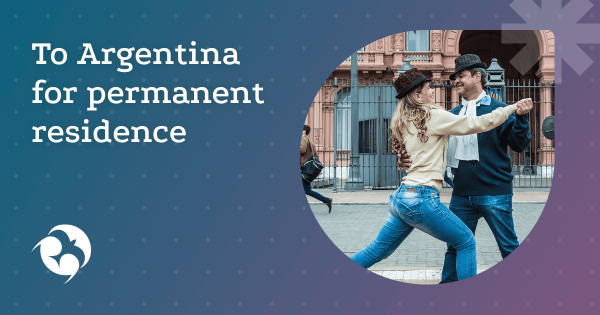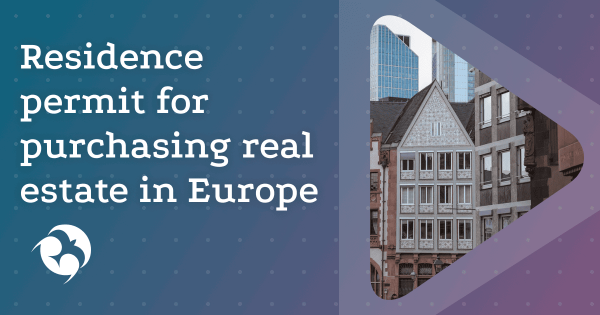For migrants Argentina is an exotic country that is associated with tango, football and tourism for pregnant women (a child born in this country of the South American continent automatically becomes the holder of a civil passport). The country is geographically remote from military conflicts, and laws protecting national and religious minorities are strictly observed on its territory. The country’s authorities guarantee free access to medicine and education at all levels. They also try to soften the conditions for business development, and there are enough niches in the domestic market that are not occupied by anyone.
All these advantages encourage people to consider the Republic as an alternative option for immigration. Well, the main preference that outweighs all the others is a relatively cheap, simple and fast way to legalize in an advanced country of the South American continent.
What is important to know before traveling?
Before deciding to move to Argentina, it is worth learning the rules of staying in the country, making an estimate of the cost of obtaining entry documents. It also needs to include the cost of renting housing, meeting basic needs (food, clothing, utilities, etc.).
Visa-free stay in the territory for no more than 90 days for six months is provided for migrants. To legally cross the border of a South American state, a tourist must provide: a passport; a document confirming the reservation of accommodation; an air ticket, a medical insurance policy. Additionally, you will need a bank statement that certifies the availability of minimum funds for living ($50 per day). The passport must be valid (at least 6 months before the planned date of departure from the country of the South American continent + the rule of having at least one blank page is observed).
The economic situation in the country
Economic problems in Argentina arise on a regular basis. Now the situation cannot be considered stable, which confirms the unprecedented level of inflation, which already exceeds 200%. The prolonged crisis in the economy and the periodic increase in prices for services and essential goods provoked the emergence of two exchange rates. One is official, the other is “gray” (the so-called “blu-rate”, it is 2 times higher).
For this reason, it is advantageous for the relocator to carry the cache with him, since it can be exchanged on favorable terms. There is also a ban on cash withdrawals from ATMs (dollars and euros) in the country. Pesos can be cashed out, but it is not profitable. In such circumstances, using bank cards is not the best solution.
The country has high income and corporate tax rates (35% and 140%, respectively). Nevertheless, the state occupies a leading position in the ranking of countries whose authorities provide maximum support to start-ups. Officials are trying in every possible way to help foreign entrepreneurs who plan to set up their own business on the South American continent. Expats receive subsidies and can apply for loans on equal terms with local businessmen.
Security and crime
Argentina is not the safest country. The criminogenic situation in large cities is not favorable everywhere. To protect their property, local residents install video cameras and combination locks in entrances, install barbed wire on fences. Theft is a popular trade among Argentine criminals. Walking through the streets of megacities, you need to be prepared for the fact that at any moment a motorcyclist may come around the corner and snatch a clutch with valuables from your hands.
Another popular method of fraud is currency exchange fraud. Taxi drivers can easily slip a fake bill or cheat an inattentive passenger. There are many people in cities who lead an antisocial lifestyle, so when you meet them, you also must not lose your vigilance. The safest cities in Argentina are: Buenos Aires, Salta, Puerto Iguazu and Cordoba.
Medicine
Medical assistance to foreigners is provided free of charge. Moreover, the quality of services in public and private clinics meets the required standards. But you can make an appointment with a doctor, provided that the patient has a medical insurance policy.
It should also be borne in mind that not all service packages are focused on compensating for the costs associated with the treatment of chronic diseases. You should not count on financial compensation for injuries that are received as part of extreme sports.
The multidisciplinary clinics of Buenos Aires, Cordoba and Pilar (Hospital El Cruce, Hospital Privado de Comunidad, Hospital Universitario Austral) are among the best in the ranking.
Reasons for moving
The Argentine authorities have provided a diverse list of grounds for relocation. The portal of the migration service contains about 13 reasons why a foreign guest has the opportunity to legalize in the country. Even when visiting a South American country as a tourist, you can change your migration status (while inside the country). Let’s look at the most common reasons.
Employment opportunities
One of the easiest ways to legalize is to come to Argentina for sightseeing purposes, find a job and obtain a residence permit based on an employment agreement. But it is necessary to take into account certain nuances. In particular, the employer must be registered in the special register of the migration department (RENURE), as well as be registered with the service that oversees state revenue issues (AFIP). A work visa is issued by the migration department. It is often requested by a company that has recruited a foreign employee.
The applicant must not have a criminal record, and he must also confirm the availability of living space in Argentina. Additionally, he issues an identification code (CUIL), through which various benefits are transferred to the employee.
Visa Digital Nomad Program
The program, which the government approved back in 2022, can be considered an analogue of a transit residence. The applicant will be required to sign a contract with a foreign company (it is prohibited to formalize employment relations with local customers). The company with which the digital nomad cooperates must provide confirmation that the performer performs his work remotely. Additionally, income statements and bank statements will be required.
The maximum validity period of a Nomad visa is 6 months (subject to a one–time extension for the same period). On a transit visa, a freelancer does not have the right to move to the country with family members. You can learn more about the Argentine digital nomad visa program and download a detailed guide on obtaining a permit in the material previously prepared by our experts.
Investment
The relocation program is designed for expats who are willing to invest their personal capital in the national economy. The minimum investment amount is 1,500,000 pesos.
You can invest capital in the field of production or commercial projects. The money must be deposited in a banking institution accredited by the Central Bank of Argentina. In order to be legalized in the country, the investor must justify in writing the financial benefits of the project for the state and submit the project to the economic block of the Government. At the final stage, it is transferred to the migration agency, which makes the final decision on granting a residence permit.
Family reunion
If a foreigner has the status of a temporary resident, then his spouse and minor children can also apply for a residence permit in this country.
The shortest way to reunite with your family is when a child is born in Argentina (he automatically receives citizenship of the country). After giving birth, the relevant documents are drawn up, and then a petition for reunification is submitted. In such a situation, parents become holders of a residence permit within a few days.
Training
The relocation program is designed for those who have decided to get an education at local colleges and universities. But a residence permit will be issued on condition that the educational institution is listed in the register of the migration department.
Relocation of pensioners
There is a legalization format in the Republic, which can be used by persons who have reached retirement age. To obtain a residence permit, the applicant will have to prove that the amount of the benefit received is equivalent to 5 SMVM (minimum wage in the state).
The resident status is issued for 1 year. If there are grounds, it is subject to prolongation.
Humanitarian and other reasons
The relocation program is aimed at people who:
- in need of international protection (without being refugees);
- unreasonably “defeated” in their rights in their native state;
- They became victims of slave exploitation and human trafficking.
Until the moment of granting refugee status, an expat can use medical services on an equal basis with others, undergo training, open bank accounts and work in the territory of the state. Such preferences are provided to him within the framework of the certificate, which is called the “Precariat of the applicant for refugee status.” After the expat is approved for refugee status, he has the right to request a residence permit.
The process of relocation and legalization is step-by-step
At the initial stage, it is necessary to determine the choice of the basis for which the move is possible. Migrants do not need a visa permit to cross the border of a South American state. But it is necessary to take care of renting a house in advance, buying a health insurance policy and checking the validity period of the passport. You should also prepare all the certificates and certificates that are needed to obtain a residence permit.
After entering the South American continent, you can get a DNI (identity card). It is recommended to follow the following algorithm of actions:
- Registration in the RaDEX system. Most applications are processed remotely).
- Submitting a questionnaire and uploading scans of certificates, contracts and certificates, payment of fees. If the documents meet the requirements, the expat receives an invitation to the migration service by e-mail.
- Passing the interview. The tourist takes fingerprints.
- Waiting for the result. If the decision is positive, the expat is given a “Precaria” – a temporary identity card, which is subsequently exchanged for a DNI.
Required documents
The dossier that will be required to cross the border is indicated in the subtitle “What is important to know before traveling”.
As for the list for the migration service, it includes:
- international passport;
- certificates of absence of a criminal past (in Argentina and countries in which the relocant lived for more than 1 year);
- apartment/home ownership lease agreement (or certificate of ownership of housing);
- a receipt confirming payment of the state fee.
The list may be expanded for different categories of applicants. For example, an employee will be required to sign an employment agreement, and a pensioner must provide a certificate of the amount of social benefits.
The cost of moving and living
The costs of translation, apostille of documents and services of migration lawyers can range from $1,000 to $10,000. The registration fee for obtaining a residence permit is $98. Additionally, it is necessary to lay down funds for rental housing. A one-room apartment in the capital can be rented for $500-$700.
To ensure a more or less comfortable life in Buenos Aires, the income of a family of 4 people should be $2,000 (excluding rental costs). If the relocator plans to live alone, then it is enough for him to earn $700-$800 (not counting the rent for the apartment).
Adapting to life in the country
Argentines are a friendly people. To successfully integrate into society, you need to learn about the cultural traditions and customs of local residents. There are a large number of migrants in the country, and the indigenous population treats them with tolerance. It is worth noting that local residents are not in a hurry to solve bureaucratic issues. Residents themselves complain massively about the high level of corruption in the country. They like to ask foreign guests about the reason for moving to their country and whether they like it here. Argentines are always ready to help a foreigner if money is suddenly stolen from him or he complains of feeling unwell.













